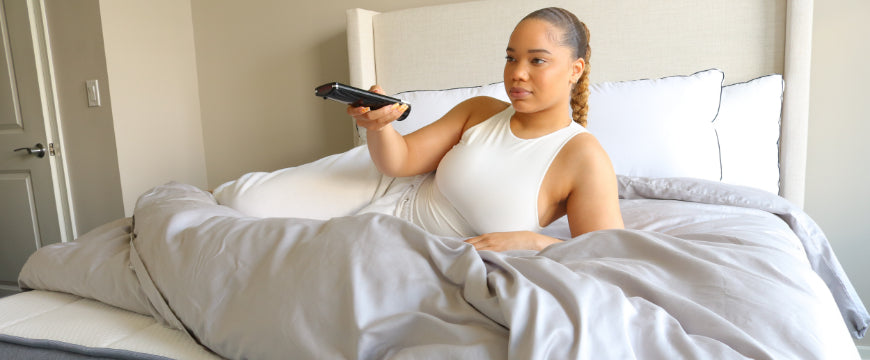
Why you should try to not fall asleep with the TV on
Do you find yourself falling asleep while watching TV? It might be a nice way to drift off and unwind after a busy night out socializing, but it’s not such a good idea to make it an everyday habit. Aside from wasting electricity and waking up to spoilers, there’s quite a few reasons why using your favorite dramas to soothe you from the real world can harm your sleep. Studies have shown that screens right before bedtime can lead to poorer sleep quality.
However, a TV before bed can also help with the right settings. The kind of media can function similar to white noise, especially if it’s a mellow documentary or lighthearted sitcom -- nothing that makes your heart race like an action thriller or horror flick rife with jump scares and screams.
Here’s some of our positive and negative thoughts on falling asleep with a TV on: